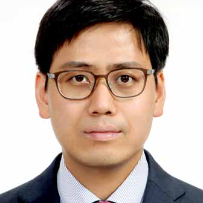Bridging Innovation and Infrastructure: Korea’s Power Grid Monitoring Project Based on Synchro-Waveform
As electric power systems grow increasingly complex, the need for real-time, wide-area monitoring has become essential for ensuring grid stability and resilience. This project introduces a national initiative in Korea aimed at developing and demonstrating a next-generation monitoring system based on synchro-waveform technology. Unlike conventional PMU-based systems that rely primarily on phasor data, this approach leverages high-resolution time-domain waveform measurements, enabling improved detection of transient events and system anomalies caused by inverter-based resources. The project combines advanced sensing infrastructure, data analytics, and communication protocols to create a robust monitoring framework spanning multiple regions. This presentation outlines the project's objectives, system architecture, key technical components, and future plans for nationwide rollout and integration into Korea's smart grid strategy.
Date and Time
Location
Hosts
Registration
- Date: 12 Jun 2025
- Time: 06:00 PM UTC to 07:00 PM UTC
-
 Add Event to Calendar
Add Event to Calendar
- Contact Event Hosts
- Co-sponsored by University of California Riverside
Speakers
Dr. Sungyun Choi of Korea University: Seoul, KR
Professor Sungyun Choi
Biography:
Sungyun Choi (Senior, IEEE), received the B.E. degree in Electrical Engineering from Korea University, Seoul, South Korea, in 2002 and the M.S. and Ph.D. degrees in Electrical and Computer Engineering from Georgia Institute of Technology, Atlanta, GA, USA, in 2009 and 2013, respectively. Since 2018, he has been an Associate Professor with Electrical Engineering, Korea University, Seoul, South Korea. From 2014 to 2018, he was a Senior Researcher with Smart Power Grid Research Center, Korea Electrotechnology Research Institute, South Korea, and he worked as a Network and System Engineer from 2002 to 2005. His research interests include power distribution, microgrids, power system state estimation, sub-synchronous oscillations, renewable forecasts, and computational intelligence.
Address:Seoul, South Korea

